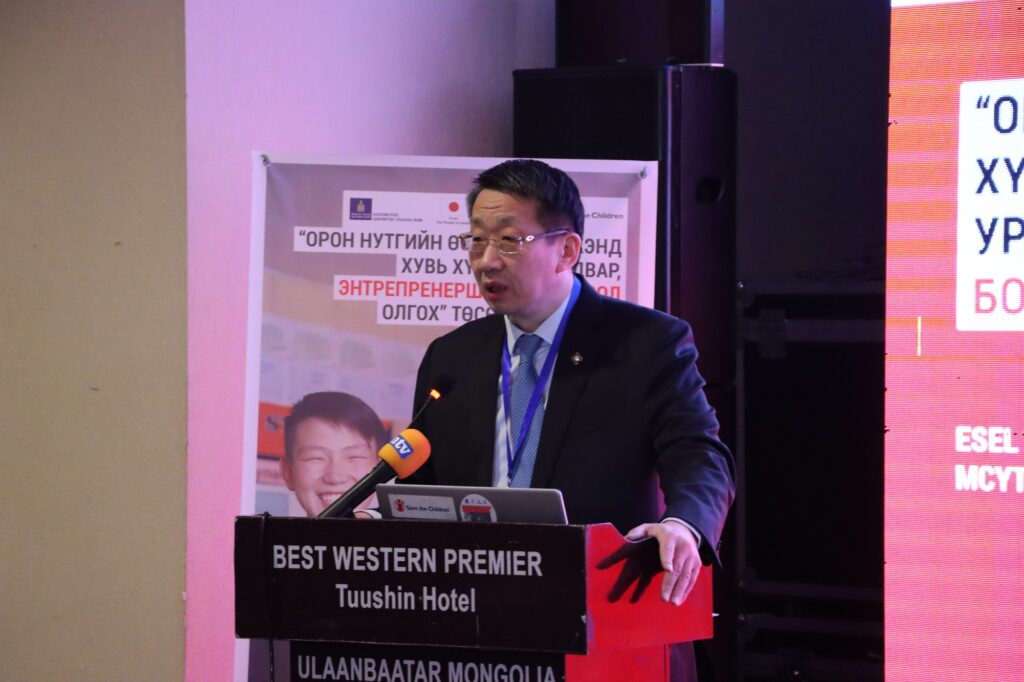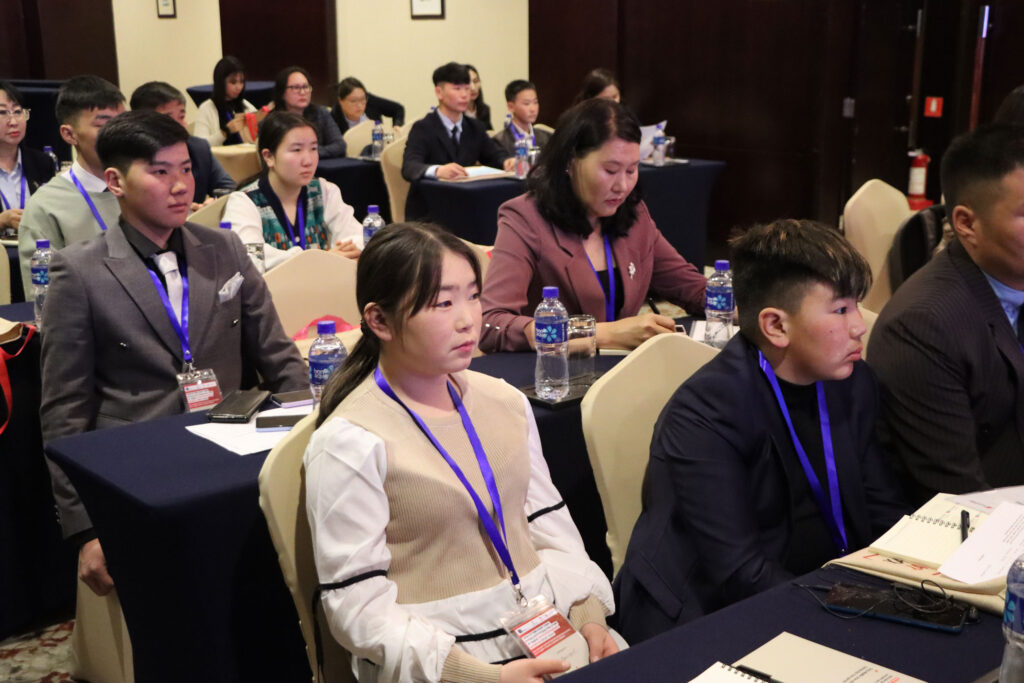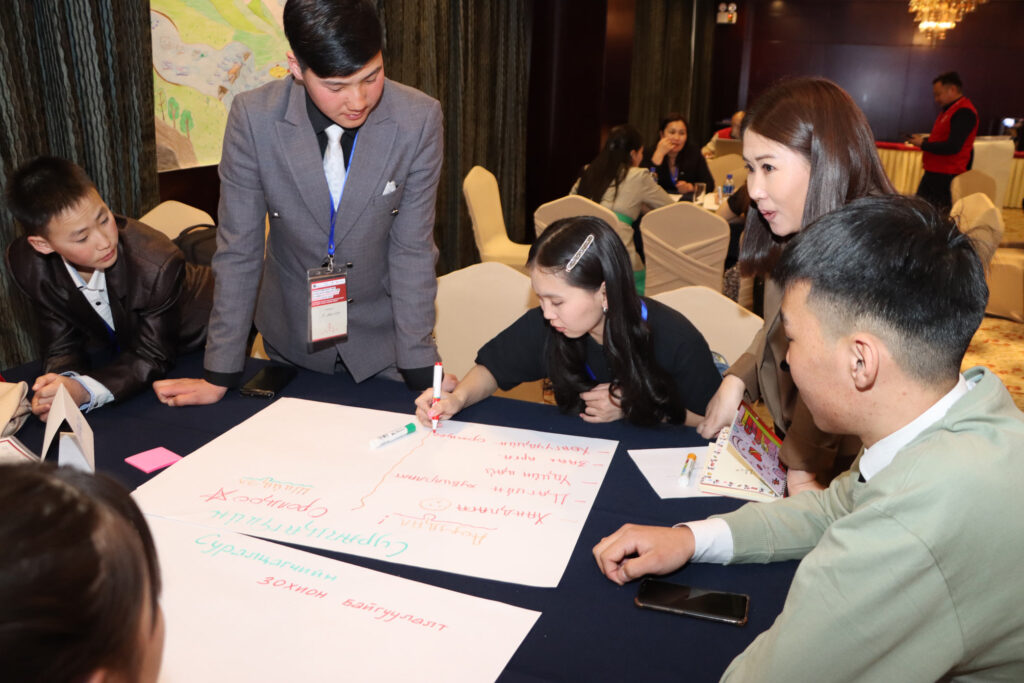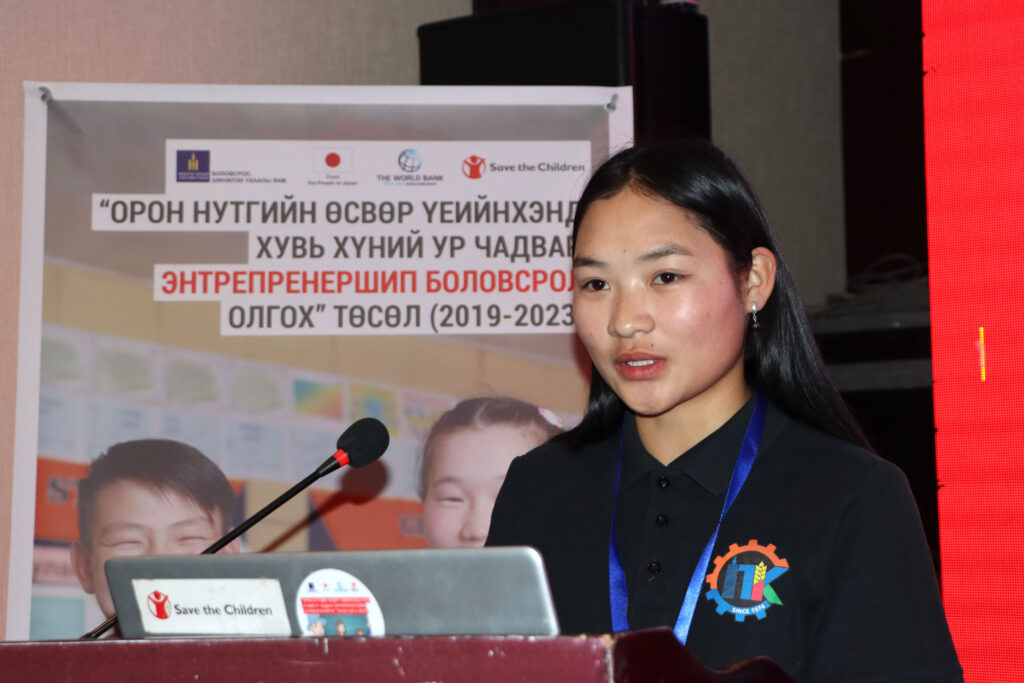ESEL program expanded to polytechnic colleges and TVET schools

In the fastest-growing development, socio-emotional skills and entrepreneurship education are essential skills for adolescents and youth. Since 2020, Save the Children Japan has been implementing the “Entrepreneurship-Focused Socio-Emotional Skills for The Most Vulnerable Youth in Rural Mongolia” project in 26 secondary schools and lifelong education centers of 25 soums in Mongolia’s Khovd, Zavkhan, Uvurkhangai, Govi-Sumber, and Sukhbaatar provinces. Since the start of the school year in 2022, the project has expanded its activities to six Polytechnic colleges and TVET schools in target provinces, in addition to the aforementioned soums. This article covers an experience-sharing meeting of Polytechnic colleges and TVET schools from the project’s target provinces that took place on January 24, 2023, in Ulaanbaatar.
The experience-sharing meeting showed that although the ESEL (Entrepreneurship-based Socio-Emotional Skills) program has only recently begun to be implemented in TVET schools, positive changes and achievements have already been seen. However, depending on the local situation, the ESEL program may need to be modified in order to be more effective for participants.
Mr. Enkh-Amgalan L., Minister for Education and Science, and member of the State Great Hural (Parliament) of Mongolia attended the meeting and welcomed participants with his opening remarks. In his remarks, he emphasized the project accomplishments that were introduced at the national forum in May 2022. ‘During this time, the Minister discussed with the donor the possibility of expanding the project to include Polytechnic colleges and TVET institutions to further enhance the project impact. He further stated that I am pleased that the idea has become a reality and that the ESEL program is being implemented in the Polytechnic colleges and TVET schools of the target provinces, with some positive changes and achievements. Employers seek graduates of Polytechnic colleges, TVET institutions, and universities not only for their theoretical knowledge, but also for their soft skills. Therefore, it is essential to incorporate soft skill development into the curricula of universities, Polytechnic colleges, and TVET institutions’.
- Mr. Enkh-Amgalan L., Minister for Education and Science, and member of the State Great Hural (Parliament) of Mongolia ©Delgermaa Altangerel / Save the Children
- Participants of the “Experience Sharing Workshop of Polytechnic Colleges and TVET schools implementing the ESEL Program” ©Delgermaa Altangerel
Khorolnyam E., a student at Uvurkhangai Polytechnic College, shared her thoughts on how the ESEL program provided students with opportunities to improve their soft skills and personal development, how she participated in the program, and what opportunities and learning the ESEL has given. As a result of the program, she has acquired and enhanced a variety of soft skills, including improved collaboration skills, a shift from a “I” to “WE” mindset, the ability to turn problems into opportunities.
Prior to enrolling in the ESEL program, Battushig S., a student at Govi-Sumber Polytechnic College, described himself as an introvert who struggled to express himself when interacting with others and participate in open dialogue. As a result of participating in the program, he has developed new abilities, including an increase in his knowledge of start-ups and an improvement in his ability to communicate and express himself. He has also become more open-minded and confident, adopting an “I can do” approach. Those who have completed the ESEL program and are interested in bringing their ideas to fruition can collaborate to create a team and apply for funding for their micro-projects. In December of 2022, alumni of the ESEL program at polytechnic colleges and TVET institutions participated in the pitching of their micro-projects. Seventeen out of twenty-four projects were successful in meeting the standards for funding and were awarded funding as a result.
Ms. Saranzaya E., a student at the Polytechnic College of the Uvurkhangai province, presented the “Mongolian incense” micro-project on behalf of her team. The objective of the project is to use natural ingredients to make incense using traditional methods, and then to put it into practice and market it. They collaborated as a team to conduct market research on other items that were comparable, study traditional methods for making incense, and plan to offer the product in the market to customers. Additionally, Davaajargal B., an alumnus of the ESEL program at Polytechnic College in the Govi-Sumber province, presented his pitch on the topic of “Jobs for college students and graduates,” which recognized current needs and answered questions from the audience.
Furthermore, it was noticed that the photo collation-presentation on “ESEL program in Tosontsengel soum” by Ms. Khongorzul Z., a student, and Mr. Otgonbaatar B., ESEL program trainer of TVET institution in Zavkhan province, the exhibition on “Our journey to acquire soft skills that will stay forever with us” by Ms. Otgonchimeg B., a student, and Mr. Enkhbayar A., ESEL program trainer of Polytechnic College in Zavkhan province have been most interesting for participants. Also, participants watched a video titled “ESEL program in my life” that was produced about Buyannemekh N., who was enrolled in the ESEL program at the Polytechnic College of the Khovd province. Buyannemekh’s teacher further explained the positive changes that were noticed in her throughout the course of the program.
Mr. Nyamdavaa Yo., project manager for “Entrepreneurship-Focused Socio-Emotional Skills for the Most Vulnerable Youth in Rural Mongolia,” provided closing remarks at the workshop, stating that Polytechnic Colleges and TVET institutions shared project implementation experiences and lessons learned. I hope the meeting provided you with new ideas and information. He also reaffirmed the project’s accomplishments and introduced forthcoming actions.
The workshop provided an opportunity for students, youth, teachers, and the school management team to learn from and with one another, share their experiences, lessons learned, solutions, and opportunities, and have a fruitful discussion about how to organize an upcoming ESEL training in their communities. It also inspired participants to continue working together to effect positive change.

Participants of the “Experience Sharing Workshop of Polytechnic Colleges and TVET schools implementing the ESEL Program”





